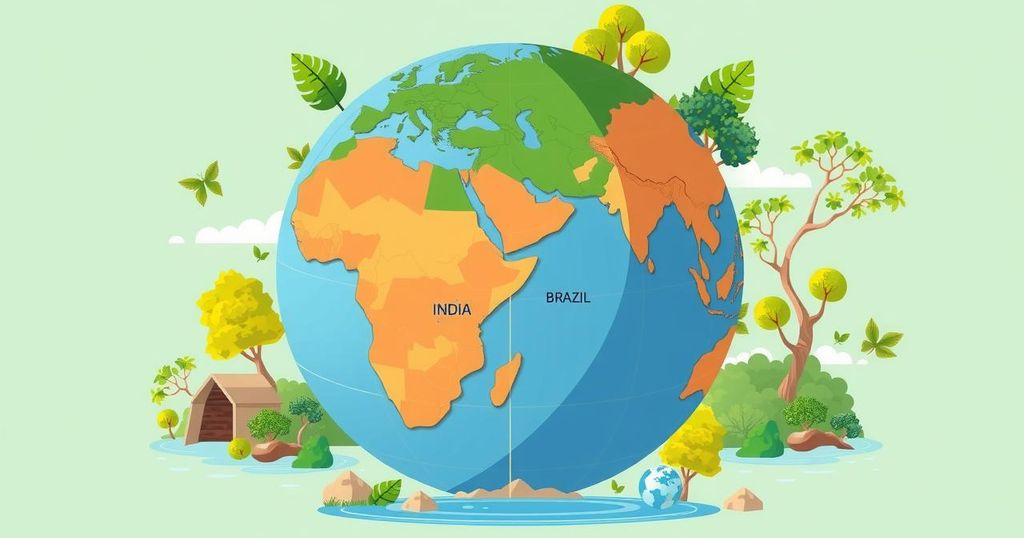The COP30 president asserts that India and Brazil are vital to global climate action as the Global North falls short on financial support and emission reductions. The Global South’s constructive participation in climate agreements is essential, and collaborative efforts between these nations could drive effective solutions. Emphasizing urgency and multilateralism, the president calls for clear communication on climate benefits to gain public and business support.
The President of COP30 emphasized the critical role of India and Brazil in global climate action, particularly as the Global North has not fulfilled its commitments. The Global South, which includes these nations, has actively engaged in multilateral processes and adhered to agreements like the Paris Accord, yet financial support and emission reductions from the North have lagged behind expectations.
Both India and Brazil, with their robust scientific infrastructure and diverse economies, are well-positioned to pioneer solutions to climate change. Their collaborative efforts within international configurations such as BRICS and BASIC demonstrate a shared commitment to a proactive “South-to-South” approach.
There is awareness and urgency regarding climate issues in India, and it wants to play a pivotal role, including offering to host COP33. The COP30 president highlighted that the impacts of climate change are manifesting more swiftly than anticipated, urging both countries to unify their stance for the Global South.
He noted that while the Paris Agreement was a significant achievement, a more rapid response is necessary as the climate crisis intensifies, with projections indicating surpassing the 1.5 degrees Celsius threshold as soon as 2024. To enhance the implementation of climate commitments, he stressed the importance of engaging various institutions beyond the UN framework.
Additionally, Brazil’s new climate commitment merges economic development plans with climate action, aiming to attract investments from major financial entities such as the World Bank and IMF. Key priorities for Brazil in COP30 include strengthening multilateralism under President Lula da Silva and improving communication surrounding climate negotiations to illustrate tangible outcomes and benefits to different stakeholders.
In summary, India and Brazil are positioned to lead global climate initiatives, particularly in response to the underperformance of the Global North regarding financial and emission commitments. The COP30 president urges a united effort among the Global South to address climate challenges, highlighting the urgency of action and the need for efficient communication strategies. By aligning economic development with climate goals, Brazil hopes to enhance international collaboration and investment in this crucial area.
Original Source: economictimes.indiatimes.com






